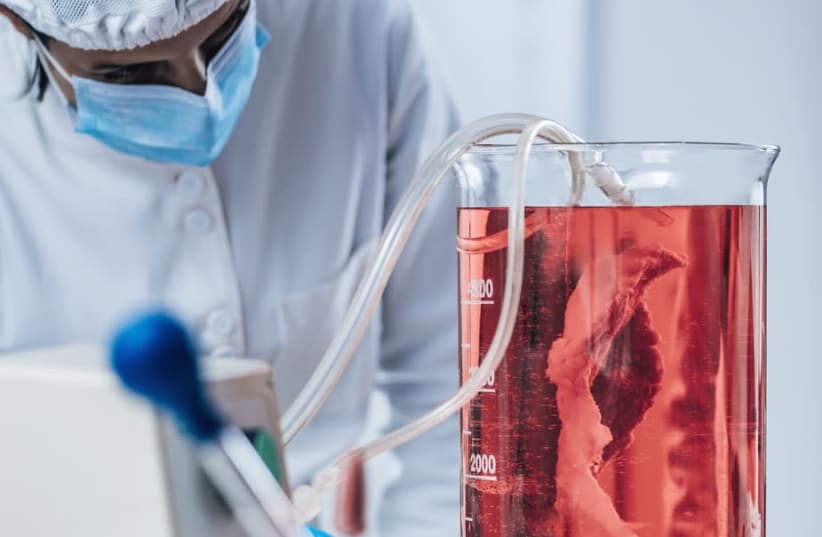At a London news conference in 2013, scientists Mark Post and Peter Verstrate unveiled the world's first cultured beef burger.
It had taken seven years and cost €250,000 to complete. Fortunately, technology has progressed much since then, and it appears that “cultivated meat” is on the verge of being economically feasible.
It's not only lab-grown meat that's having its day. Plant-based meats that are virtually indistinguishable from the genuine thing are currently available. Alternative meats are becoming more widespread as their popularity and demand grows.
The fast rise in alternative proteins and meat substitutes can be attributed to a number of factors. Concerns about the environment, health, water usage and antibiotic resistance are among them.
Global carbon objectives have been set as a result of climate change, and considering the resources consumed by the meat sector, something needs to change. Currently, the animal agriculture industry is responsible for the clearing of forests, large amounts of water use, and around 15% of greenhouse gas emissions.
The technology required to make meat replacements is fast maturing, and the products are proving to be popular, fuelling demand and garnering media attention.
While there have been meat substitutes for decades, they were primarily aimed at vegans. The difference between a vegetarian burger and the newer alternatives is that the latter are engineered to taste like meat and are sold especially to meat eaters.
Plant-based meat touts a smaller environmental footprint and has become more mainstream, making its way to diners through supermarkets and fast food chains such as Burger King and KFC. The growing availability of such products is in turn spurring more research to be done on their health impact. Pinduoduo, China's largest agriculture platform serving 824 million users, has collaborated with Singapore's Agency for Science, Technology and Research to study the nutritional effects of consuming these alternative proteins. The study's findings will assist consumers to make more educated judgments while also providing manufacturers with independent data to compare their products to.
Pinduoduo, which has made modernizing the agri-food system part of its core mission, is also holding a forum next month where cultured meat pioneers like Maarten Bosch, CEO of Mosa Meat, and Professor Yaakov Nahmias, founder of Future Meat, are slated to speak.
Proponents of cultured meat (also known as cell-based meat) point to the rapid reduction in pricing compared to animal-raised meat as the clearest signal that widespread commercialization is on the horizon. The scaling up of production may help reduce the meat industry’s impact on the environment.
Future Meat recently made headlines for bringing costs down to $7.50 per 110g of cultured chicken breast at the start of the year, and then further driving it down to $3.90 in April. Professor Yaakov Nahmias was quoted as saying that Future Meat’s technology is “species agnostic”, meaning that it can be used to make other meats including beef, lamb and pork.
The company claims that its cell-grown meat emits 80% less greenhouse gases, uses 99 percent less land, and uses 96 percent less freshwater while preserving 100% of the nutritional value. It has set its sights on China and India as major target markets.
Mosa Meat, whose team was behind the first cultured meat eight years ago, is another startup on the verge of regulatory approval. The firm reportedly raised $85 million in a Series B funding round and will use the funds to extend its current pilot production facility in Maastricht. The funding round was led by Luxembourg-based Blue Horizon Ventures.
"The closing of Series B funding brings us one step closer to our mission to develop a cleaner, kinder way of making real beef,” said Mosa Meat CEO Maarten Bosch. “Our partners bring immense strategic capabilities and expertise, and share our strong commitment to increasing the sustainability of our global food system."
After conquering the hurdle of price, the primary challenge that cultured meat companies like Mosa Meat face may be encouraging consumers to get past their aversion to cell-based meat. After all, labels like “cultured meat”, “lab grown meat”, “in vitro meat” or, as Bill Gates refers to it, “synthetic beef”, don’t sound too palatable.
Multiple consumer surveys conducted in Europe and North America discovered that acceptability ranged from 20% to 90%, depending on the country, but that even 20% would be a good start.
With cultured meat prices declining rapidly and plant-based diets already inexpensive and widely available, it may be only a matter of time before alternative proteins become more mainstream.
As it stands, if people can’t give up their meat, they could turn to these substitutes. Then they could have their steak and eat it too.
